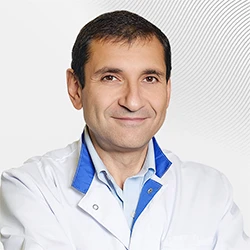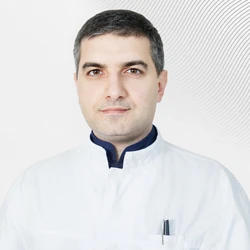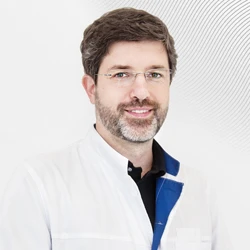Intensive care patients are patients with serious illnesses and injuries after complex surgical procedures and anesthesia. And if most of us know what happens in hospital rooms, then intensive care and intensive care are usually always closed to prying eyes. Visits to the intensive care unit are usually prohibited. However, any of us is sure that when a person is in critical condition, it is very important to have a loved one nearby.
The head of the Intensive care Unit (ICU) tells about visiting patients with relatives and friends EMC Elena Aleshchenko:
Why visit ICU patients?
In fact, a patient in the ICU rarely needs the presence of relatives. But for many people, it is very important to make sure that everything is okay with a loved one, to be with them for at least a minute, and we understand this perfectly well. After anesthesia and surgery, the patient does not need additional care from relatives: he is fully provided by the medical staff of the department. Moreover, most people cannot always adequately perceive the appearance of a loved one who is connected via wires and "tubes" to devices and monitors, and nurses are constantly scurrying around him.
It should be understood that a person who wants to visit a patient in the ICU must be prepared. Before allowing a visit, we talk in detail with relatives so that they correctly perceive everything that is happening with their loved one - of course, they have questions. Admittedly, we manage to find a common language with most of the visitors. Then, being in the ICU, they do not interfere with the treatment process. But in fact, the best time to see your loved ones is when the patient is close to recovery and ready to be transferred to a hospital.
However, relatives should keep in mind that the most important thing for us is the patient's opinion about visits to both the ICU and the hospital. We also follow the patient's wishes about who can be provided with information about his health status, which are recorded in the inpatient's medical record.
How should visits to the NICU be organized?
Intensive care is a department where there is a special sanitary and epidemiological regime dictated primarily by the interests of patients. We do not allow you to enter the department in outerwear and outdoor shoes. We will ask you to change into disposable shoe covers and a bathrobe.
When is the best time to go to the ICU?
Of course, all visits to the ICU must be coordinated with the doctors and the head of the department, and, of course, the main thing is the patient's desire. Intensive therapy is also a treatment, but it is many times more active, in simple terms, and it is aimed at restoring vital functions (respiration, blood circulation, metabolism) disrupted as a result of surgery, anesthesia, trauma, or serious illness. There is a lot of sophisticated equipment that monitors the condition of individual organs and systems and supports the vital functions of the body. In addition, we have a lot of invasive procedures, so the doctor will tell you the most convenient time to visit the patient. We are always in touch with the relatives and friends of our patients.
How much time can a visitor spend in the ICU?
If you visit someone in the ICU, you need to understand that not only your relative is here, but also other patients. Everything that happens here with the patient takes place in the presence of many people - the medical staff and the patients themselves, so you need to be prepared for the fact that you will witness not only medical events, but also meals, hygiene procedures, and toilets. In our department, it is possible to mark the area around the patient's bed with a screen, which allows you to create some personal space. However, this restricts free access to the patient and may prevent medical staff from providing the necessary care, so we set the number of visitors in advance and ask you not to stay too long in the department.
How long can a patient stay in the ICU?
The more severe the patient's condition, the longer he stays in the ICU. We need a certain period of observation, monitoring of vital signs, round-the-clock medical and nursing posts.
For simple surgical procedures, we monitor the patient from one to several hours, for large operations - a day or more, and transfer him to the hospital only after complete stabilization of the function of organs and systems. If the patient's condition requires intensive therapy and replacement of vital functions, he remains in the ICU until full recovery. It can be a lengthy process. But we explain to the patient (as much as possible) and his relatives that there is no need to force events, there is no need to rush back to the hospital, because intensive care is carried out in the ICU. We need to make sure that nothing threatens our lives.
The ideal situation
There is no "Do not enter" or "No trespassing" sign on the doors of our department and there never will be. The doors of all branches in the EMC are open to visitors (except for the operating unit, which is sterile). However, we ask you to adhere to the time of visits or coordinate your visits with the doctors of our department. After all, we have one goal – to help sick people in a critical situation. It's not easy, let's try to combine and coordinate our efforts.
Was this information helpful?
Questions and answers
Break iafter the last course of chemotherapy
Why a break is necessary after the last course of chemotherapy?
In cases where chemotherapy is not enough effective, some cells of the tumor does not die as a result of exposure and only slow down their biological processes temporarily, so they do not accumulate diagnostic radiopharmaceutical that can lead to a false negative result. After 2-3 weeks, tumor cells return to their
normal state and can be seen at the PET/CT scan. Thus, the break after the last course of chemotherapy should be done in order to obtain reliable results of the quality of treatment.
...more
Radiation therapy for prostate cancer
What to expect during radiation therapy for prostate cancer?
The procedure of external radiotherapy is similar to conventional x-ray examination. Radiation is invisible, has no smell and gives no sensations, side effects do not appear until 2nd or 3rd week of treatment.
Radiotherapy for prostate cancer is a local treatment; therefore, you may experience some side effects
only in those parts of the body that are exposed.
...more
Сhronic nonspecific spondylitis
Can we go to your center in the following case: the patient born in 1955. Diagnosis: chronic nonspecific spondylitis T7-T9. A state after interbody fusion T7-T9 with autologous bone. Brown-Sequard's syndrome. Right thoracotomy with interbody fusion using autotransplantation (resected rib) was done in 2010, no bone
block formed during the postoperative period. Transpedicular fixation T 5-6-10-11 was also done in November 2010. There was a primary healing on the wound as a result of treatment. He was able to sit and stand as well as stay in upright position up to 2-3 hours. At the moment, mobility is restored, able to walk and sit. But pain is still present. Can we expect further surgical treatment and rehabilitation at your center?
...more
In this case surgical care rendered fully, but it is hard to say more without images. If pain is still present, it is necessary to look for the cause of this, but it may be in the early postoperative period. You can contact us for a consultation to clarify the nature of the disease.
MRI or CT scan
Please tell me what kind of examination is better in case of head injury - an MRI or CT scan. I have hit my head in June this year, and now I feel a discomfort at the site of the injury sometimes (there in no acute pain)?
CT has advantages in the visualization of bone structures. MRI is better for soft structures imaging, including the brain substance. According to the description, the intracranial structures damage is unlikely. Why CT or MRI? An ultrasound of soft tissues in the area of injury is also applicable. The pain in the
scull can also be associated with vessel, for example, cranial arteritis, or lymphadenitis, or muscle/enthesis, and then you might need certain blood tests. And maybe these tests are not required. I would recommend you to see the doctor and let him assess the case; he will take a decision concerning following examination as a result of consultation.
...more
Lump in my breast
I have noted the lump in my breast periodically appeared following breastfeeding my first child (as a result of plugged duct). I did an ultrasound, but it revealed nothing, as if everything was normal. I knead my breast periodically and feel pain at those moments. Now I am pregnant, due date is on 20th. What should I
do?? When to examine my breasts, is it possible to perform the examination during pregnancy and lactation?
...more The "lump" in the breast cannot occur after feeding, even if it was the plugged duct. You should not "knead" the breasts. If there is a problem or even if you think it is – the breast should be examined. Pregnancy and breastfeeding are not contraindications for this. Under normal conditions for pregnant women we
recommend a breast examination during 1 and 3 trimester (before childbirth). There are no contraindications for breast examination in your case. You are welcome at any convenient time for examination and advice on breastfeeding.
...more 





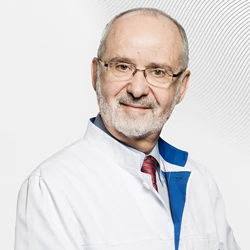

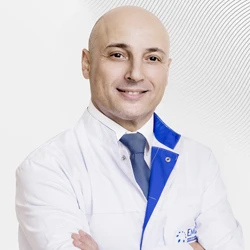

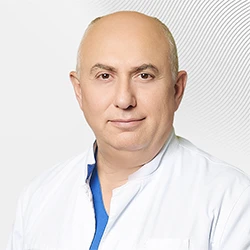
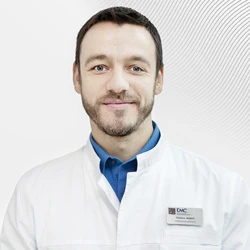
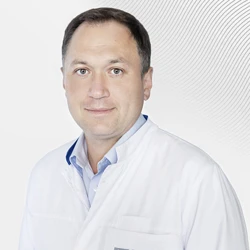
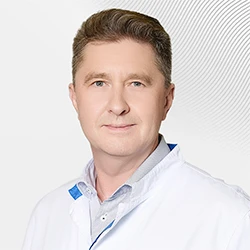


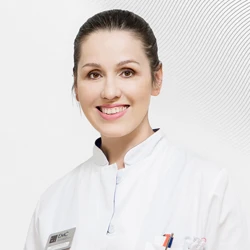

.webp)

.webp)
